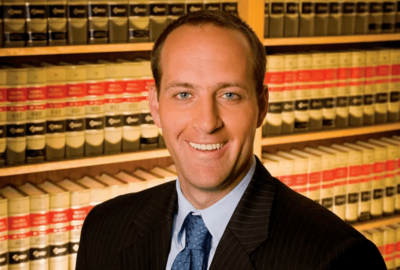Can an organization have cancer?
The question occurred to me during a recent interview with Mark Pletcher, an assistant U.S. attorney for the southern district of California. He’s been working on the Navy’s bribery scandal of the 7th Fleet for the past six years. He and Jim McWhirter of the Office of Inspector General at the Defense Criminal Investigative Service are also finalists for this year’s Service to America Medals.
I’ve conducted other interviews about the so-called “Fat Leonard” affair over the past several years. But something Pletcher said, just chatting after I’d concluded the interview, stuck with me. Leonard Glenn Francis, the owner of the bribe-providing ship husband company that nearly monopolized the 7th fleet, is actually fond of the U.S. Navy. In some weird way, he wishes it well.
In several published reports over the years, Francis was quoted to have said, in effect, “Nothing but the best for the Navy.” And several reports state that Francis’s company, Glenn Defense Marine Asia (GDMA), did in fact provide excellent service.
Given the access to officers and information on ship movements that Francis enjoyed in his heyday, imagine the damage he could have done had he secretly been an enemy of the United States. The U.S.S. Cole incident in 2000 shows how vulnerable Navy ships really are to determined enemies.
However much he might have loved the Navy, Francis was ultimately interested in enriching himself. He used old fashioned kickbacks and bribes to keep the contracts for ship provisions rolling in. As has been widely documented, officers up to flag rank received gifts, junkets, parties and prostitutes. Such generosity acted as fertilizer to the worst ethical weeds rooted in Navy personnel history.
Many Service to America medalists receive their awards after they’ve completed a piece of work. Pletcher and McWhirter will attend the gala in September and return to their respective offices to continue discovering and prosecuting naval wrongdoing.
Most compelling about the Fat Leonard scandal is its scope. An article published by Sam LaGrone of the U.S. Naval Institute in January detailed what it calls the hidden costs of the long-tentacled investigation. It quoted former Navy Secretary Ray Mabus in this observation: If an officer’s name even crossed Francis’s lips, that officer had to be investigated. This extended to every senior sailor who traversed the Pacific. “It took in a huge percentage of flag officers, and it really hamstrung the Navy in terms of promotions, in terms of positions,” Mabus told USNI.
Imagine knowing you are innocent while nevertheless enveloped in an investigative wave. Even if you come out OK legally, you may be tainted for promotion or have a promotion delayed as long as you’re ineligible. In February I interviewed retired contract management professor Bruno Wengrowski. He pointed out that in the first five years, 400 people — including 60 admirals — had been pulled into the investigation.
Just as Pletcher told me, initially investigators thought they were dealing with a routine bribery. They grew amazed as the the more they dug, the more they found. The case has required ever-growing amounts of resources, whole teams of people working full time from multiple federal bureaus and dedicated office space. In some ways it mirrors the scope of the 7th Fleet itself. It patrols something like 60 million square miles encompassing 50 ports of call. But leadership made structural mistakes, such as the acquisition setup, which made things easier to operate for the dishonest.
Having covered government for 28 years as editor, commentator and broadcaster, one impression I’ve always had of the U.S. bureaucracy is that it is essentially honest. That’s why the exceptions — the Darleen Druyuns for example — both fascinate and horrify us.
In a combined civilian and military workforce of some 4 million people doing business with tens of thousands of companies, of course you’ll find crooks. Still, imperfect as human nature and the controls in place to curb it may be, doing business with the federal government has not been like doing business in Russia, say, or many of the former Soviet countries.
The Fat Leonard case, though, is so pervasive if feels like a malignancy. One from which recovery will take the Navy a generation. A couple of years ago at the Sea-Air-Space conference, I asked Navy Secretary John Richardson about Fat Leonard. I forget precisely what he said, but I haven’t forgotten his vagueness and flat tone. He looked straight ahead into the distance. It sounded as if the question invoked too many thoughts to address in detail.
It’s not over yet. But even cancer can be licked.
Copyright
© 2024 Federal News Network. All rights reserved. This website is not intended for users located within the European Economic Area.

